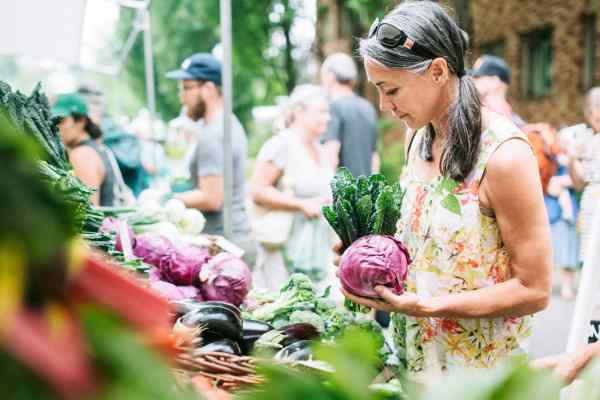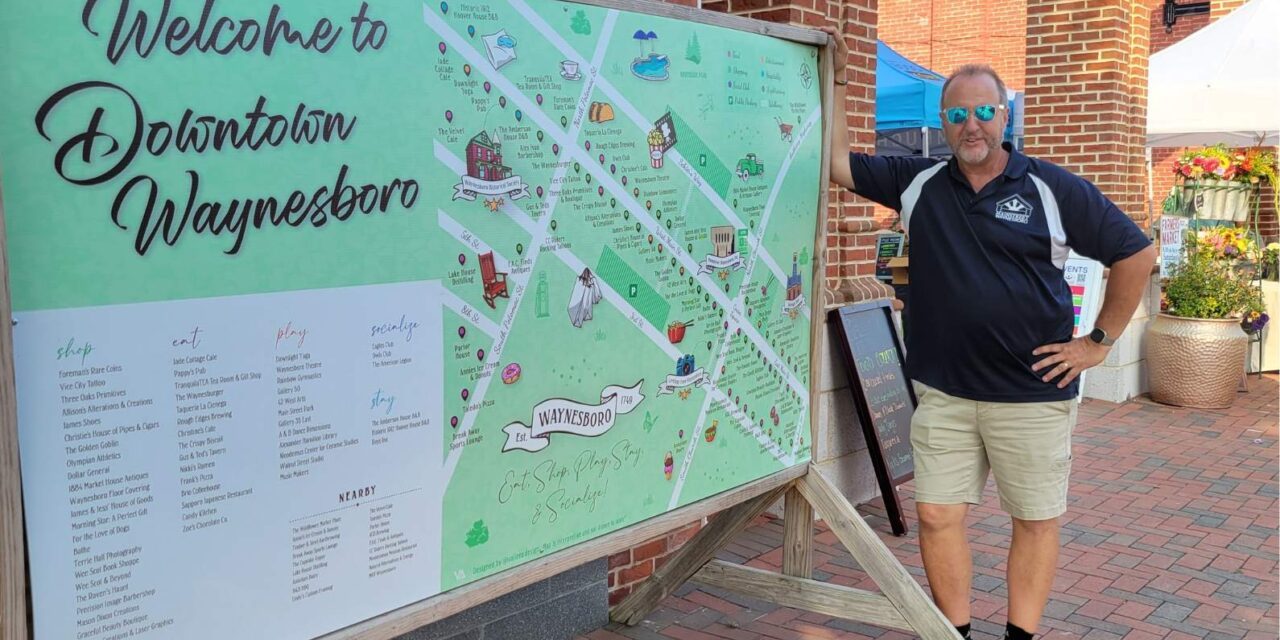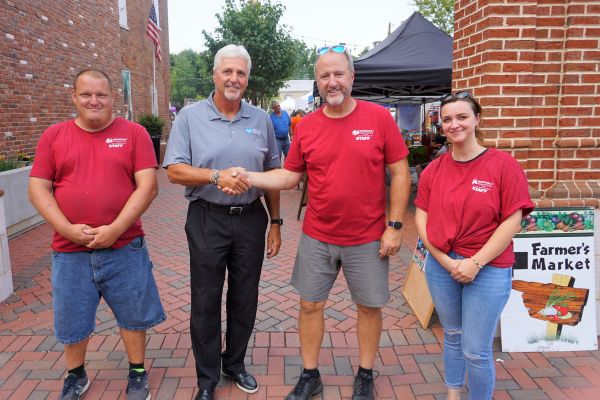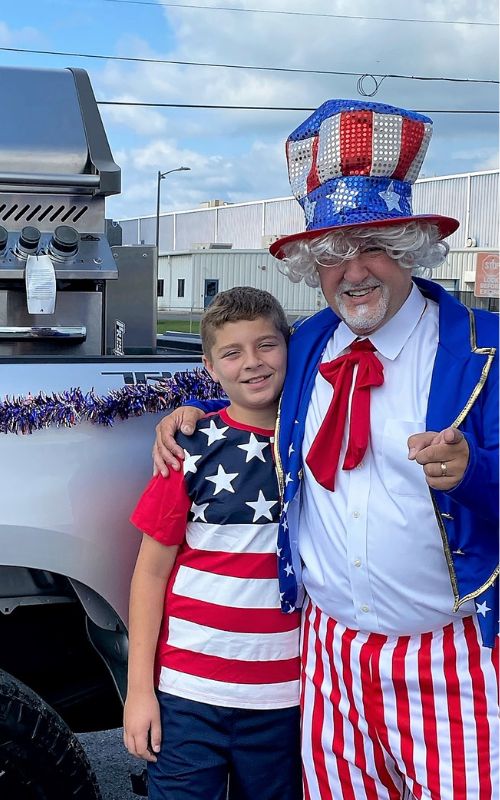Farmers’ Markets and Community Supported Agricultures (CSAs) Have Huge Impact on Community Health and Engagement
Farmers’ markets have long been known to boast fresher, tastier produce over their grocery store counterparts. But did you know local produce is also better for your health? Grocery store produce is often picked before ripeness, stored in specialized containment units, and gassed to stimulate the ripening process. In contrast, most produce found in local markets is allowed to ripen in the field, which enhances taste and nutritional composition. This development of key nutrients means that you are receiving the greatest health benefit from the fruits and vegetables you consume. And that’s only one of 10 reasons to support farmers’ markets in your area.
A recent study also found that farmers’ markets and consumer supported agriculture (CSAs) have a positive effect on local economies too. When communities support farmers, it creates jobs. “For every $1 million in revenue, direct-market farms create almost 32 local jobs whereas larger wholesale growers create only 10.5.” A similar study conducted by the USDA’s Economic Research Service found that nearly all income earned in local markets remains in local economy.
Farmers’ markets and CSAs also create higher community involvement, as you will see below in our exclusive interview with Mainstreet Waynesboro director, Bill Kohler.

Find local farmers’ markets, CSAs, and agritourism near you.
Visit the USDA’s Local Food Directories
‘Mainstreet Waynesboro’ Director Shares Farmers Market Success in Revitalizing a Community
One Planet Life sat down with Bill Kohler, director of the Pennsylvania non-profit Mainstreet Waynesboro, to discuss the positive impact farmers’ markets can have in boosting a local economy, fostering a sense of community, and offering options for healthy food choices to everyone.
Market in the Park, located in Waynesboro, Pennsylvania, is held over 20 Saturdays at Main Street Park from May 25 through October 5. It offers locals the chance to support their talented neighbors, buy locally-grown fresh produce, and more.
Q: What role do local farmers’ markets play in supporting the local economy?
A: Starting with the local view, I think it’s huge. If you took a drone down Main Street in 2012 on a Saturday morning, it was like a ghost town. When I started this job, they asked me, ‘What kind of difference are you going to make?’ I said, ‘Well, right now, there’s nobody here. I’m going to find ways to get people here. From a 20,000-foot view, that goal was looking down and seeing people.
When we originally started talking about the market, we wanted not just to have things that were grown in the Waynesboro area, but we wanted to help small businesses grow, and it’s worked.
We applied for a grant, and our goal was to have 125 people, on average, per Saturday and 10 to 12 vendors. So we planned accordingly for that. We had an ultimate goal that some of those vendors would be able to open up a coffee shop, a brewpub, or something like that. We’ve been able to show tangible results.
Our slowest day was back on [June] 24. We had 625 people come to the market. How many of those people would have come downtown if not for the Farmers’ Market? What we’ve tried to do over the years is expand how we market it because we have all those people. How do we attract them to continue our mission of getting them downtown and supporting the businesses? As they leave, we want to give them a paper saying, ‘Oh, why don’t you get out and check out James & Jess’ [House of Goods] and Waynesburger and all these other places.’ That’s been one way we’ve been able to kind of spread the market out a little bit. It’s really had an impact.
Another thing that is kind of funny is that every week when there’s a traffic jam because of the market, it’s a chance for people to slow down and look at all the other businesses along the street they may not have noticed before. That’s been another ripple effect.
Q: How do farmers’ markets contribute to the growth of small-scale farmers and small businesses?
A: We didn’t want to make it only a farmers’ market. Part of the problem that we discovered was a lot of these farmers they’re already super busy. They already go to a lot of different markets.
Saturday morning is the busiest day for markets. Over the years, we’ve had seven different produce sellers that were strictly produce. About 50% of them were brand new. The others were pretty established.
Our one produce guy; this will be his third year. The first year, his display was very rudimentary – he just had a table with stuff on it. Last year, he bought a great big display. That’s how they adapted to their customers. They’ve learned from other vendors, and I’m sure a lot of these farmers go to other markets to see what’s going on. They’ve learned to be more savvy.
It also creates entrepreneurship. People will say, ‘Oh, I want to open a bakery’ or ‘ I want to open a store downtown’ but I say, ‘Here, let’s get you started at the farmers market.’ For $25, you can set up and potentially connect with 500-600 customers, and that’s huge.
It has allowed them to see what works and what doesn’t. Sometimes they realize they aren’t quite ready to open a shop. Sometimes they’ll realize, ‘Oh, wow, I’m charging way too much for tomatoes,’ for example.
They’ve also learned about marketing, which has made a difference for them in their sales and it’s great for the market, too. Not everybody is made for social media. But we’ve been encouraging them to expand their business through social media because there’s no traditional advertising anymore. Nobody can afford TV and radio really, other than big companies. So using that is such a great way to connect with customers. For these folks that do use it, we share the heck out of their stuff, and we’re encouraging them to understand this is their chance to connect and make money.
Q: How do farmers’ markets help foster a sense of community?
A: Some people come down here and don’t spend a nickel. They just come down here to see people. We’re happy that it’s become a community hub. That was one of the goals. That’s why we have music every Saturday. We’ve been able to get sponsors to pay for that. We just want to create a nice, friendly, fun environment. We figure if people feel comfortable, this will kind of be an extension of their backyard. With all markets, they can be a source of pride for the community.
The greatest satisfaction that I see is not just that community aspect but seeing people grow and it turning into a successful thing for them. Like a farmer, we planted the seed. Then other people watered it – whether it’s the sponsors, the other vendors, or all my volunteers who helped promote it.
The market has been a game changer, not just for the organization but for the park. We rent it out for concerts, weddings, and class reunions. The market has been that place where they can see people that they haven’t seen in years. It was a magic solution, I’d say, that brought Waynesboro back to life and revitalized downtown.
Q: What impact do farmers’ markets have on bringing access to healthy food options to the community?
A: We have Dollar General, but there is nowhere to shop for anything other than processed and canned goods [in the immediate downtown area]. Before, we had two or three fewer restaurants. But the market has created an opportunity for people to walk to get what they need.
When we actually applied for the Summit Endowment, that was kind of the emphasis. Every community has a section of lower-income folks, and we have that downtown. Part of the goal was not just to create a cool place where we had doughnuts, beer and wine, and other cool stuff but also we wanted to provide an opportunity for people to get fresh produce – fruits and vegetables.
Q: Are there any challenges or barriers that local farmers’ markets face in their efforts to benefit the local economy?
A: The main problem is continuing to get a good range of vendors. I’m trying to do what’s good for vendors and what’s good for shoppers. You can’t have one without the other. If your vendors aren’t good, shoppers aren’t going to come and spend money. If there aren’t shoppers, vendors aren’t going to stay. That balance has been kind of the key.
The Borough has been very supportive because they don’t have to do it. There are certain people in the council there that don’t move quickly and don’t like change. So I kind of had to push it, but the people that were on my side from the beginning were very supportive.
My advice to anybody starting or looking to create a successful market is to put out little fires before they become big fires and to work together. Everybody wants to make money, everybody wants to have success. I think you have to keep that in mind, common goals.
Q: What strategies or policies can be implemented to enhance the positive impact of farmers’ markets on the local economy?
A: In a community, if you’re looking for a spark, if you’re downtown especially, you can find a way to pull off a successful market. It can be the spark for your downtown revitalization because it checks so many boxes.
Pay attention to your vendors because they really want to be a part of something that’s bigger than just making money. I think that’s what we have here — a really good setup that people enjoy. Vendors are going to take care of their customers. They’re so generous.
A market needs a good location, and good programming, in addition to good vendors. I hate to use the old real estate thing, but ‘location, location, location’ and the right people pushing the buttons – hire good people to help run it.
We’ve also had great support from the community. Everybody wants to be a sponsor of the farmers’ market. If you have those elements, that’s where you can really succeed.
Q: How can consumers actively support and promote the success of local farmers’ markets in their own communities?
A: Certainly, the best way to support a market is to go. But also, don’t be afraid to ask them about custom work. A lot of these people are crafters or growers – don’t be afraid to ask questions and talk to them about how they got started.
If you like something you bought, tell people about it. Give positive reviews. If you can’t afford to go and spend $50 on chocolate, just buy a couple of dollars and share how good it was on social media to spread the word.
For the most part, people want their community to succeed. They want to see a full downtown of stores to go shopping. The market now provides a place for people to go, to take people and kind of show off how we have this cool little farmers market.
Q: What do you envision for the future of your farmers market and its role in building a resilient and sustainable community?
A: The goal for the market is first to continue to be self-sustaining. I also want it to be more educational. One of our goals this year was to have something like master gardeners and others that would come and educate and talk about their craft. It hasn’t materialized yet, but I want it to be more of a place where people can come in and learn about how to grow, how to raise chickens, and stuff like that.
We want it to evolve each year, making it fun and welcoming, and just continue to make the park and downtown a major part of the community. We’re also trying to figure out how to fill the empty storefronts in town and make the most of the spaces we have left.
There aren’t any secrets to downtown success: some things work, and some things don’t. It really depends on the community. I want to emphasize the fact that I don’t have all the answers, but I will find people who do. There are so many resources out there.
Photo Credit: Bill Kohler

Written by Carley Kimball
Freelance Journalist and OPL Content Contributor
“I’ve always tried to implement planet-friendly practices in my life but didn’t quite realize just how much of an impact individuals can make until I was introduced to One Planet Life. I’m so excited to be able to utilize my professional skills to contribute valuable information and positive personal experiences to help make the world a better place.”













